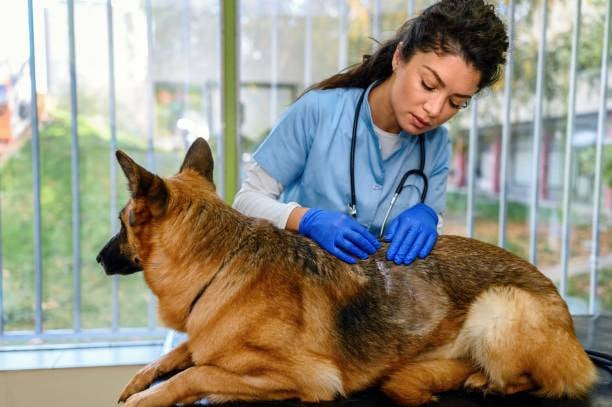Allergies in dogs are a common concern for many pet parents, manifesting in various ways that can affect their furry friends' quality of life. From itchy skin and digestive issues to respiratory discomfort, understanding the signs, triggers, and management strategies for canine allergies is crucial for every dog owner. This blog post delves into the essentials of allergies in dogs, providing pet parents with the knowledge they need to identify and address these uncomfortable conditions.
Types of Allergies in Dogs

Dogs can suffer from different types of allergies, each with its own set of triggers and symptoms. The most common include:
1. Environmental Allergies
These are triggered by allergens in the dog's surroundings, such as pollen, dust mites, mold, and grass. Symptoms often include itching, redness, and skin infections, particularly on the paws, face, and underbelly.
2. Food Allergies
Food allergies in dogs are reactions to specific ingredients in their diet, often proteins like beef, chicken, dairy, or wheat. Symptoms can include gastrointestinal issues like vomiting and diarrhea, as well as skin problems.
3. Flea Allergy Dermatitis (FAD)
FAD is an allergic reaction to flea bites, specifically to the flea's saliva. Even a single flea bite can cause severe itching and skin inflammation in allergic dogs.
Recognizing Allergy Symptoms

Allergy symptoms in dogs can vary but typically involve the skin, digestive system, or respiratory tract. Key signs to watch for include:
- Excessive scratching, licking, or biting at the skin
- Red, inflamed skin, hot spots, or hair loss
- Ear infections or head shaking
- Sneezing, coughing, or wheezing
- Watery eyes or runny nose
- Swelling of the face, ears, or eyelids
- Vomiting or diarrhea following meals
Diagnosing and Treating Dog Allergies

If you suspect your dog has allergies, a visit to the veterinarian is crucial. Diagnosis may involve:
- A detailed medical history and physical examination
- Elimination diet trials for food allergies
- Skin or blood tests for environmental allergies
- Intradermal testing for more precise allergen identification
Treatment strategies can vary depending on the type of allergy and its severity but may include:
- Avoidance: Identifying and removing the allergen from the dog's environment or diet is the most effective strategy.
- Medications: Antihistamines, corticosteroids, or immunosuppressants can help manage symptoms, but long-term use requires careful veterinary supervision due to potential side effects.
- Topical Treatments: Medicated shampoos, creams, or ointments can provide relief for skin symptoms.
- Immunotherapy: Also known as allergy shots, this treatment involves exposing the dog to gradually increasing doses of the allergen to build tolerance.
- Dietary Changes: For food allergies, feeding a hypoallergenic diet or a novel protein source can be beneficial.
- Flea Control: Rigorous flea control is essential for dogs with FAD, using vet-recommended preventatives year-round.
Managing Allergies at Home

In addition to veterinary treatments, pet parents can take steps at home to alleviate their dogs' allergy symptoms:
- Regular Bathing: Frequent baths with hypoallergenic or medicated shampoos can remove allergens from the skin and coat and soothe irritated skin.
- Cleaning Routines: Regularly washing bedding, vacuuming, and using air purifiers can reduce household allergens.
- Omega-3 Supplements: Omega-3 fatty acids from fish oil can help improve skin health and reduce inflammation.
- Paw Care: Rinsing or wiping your dog's paws after outdoor walks can remove pollen and other allergens.
Allergies in dogs can be challenging to manage, but with proper diagnosis and a comprehensive treatment plan, most dogs can lead comfortable, happy lives. Understanding the types of allergies, recognizing the symptoms, and knowing when to seek veterinary care are essential steps for pet parents. By combining professional medical treatments with attentive home care, you can help your allergic dog find relief and enjoy their days itch-free and content.
Start a free trial with Revelation Pets to see how much easier managing your pet-care business can be.






